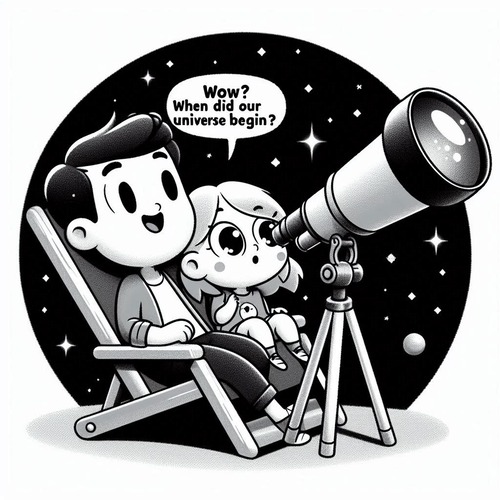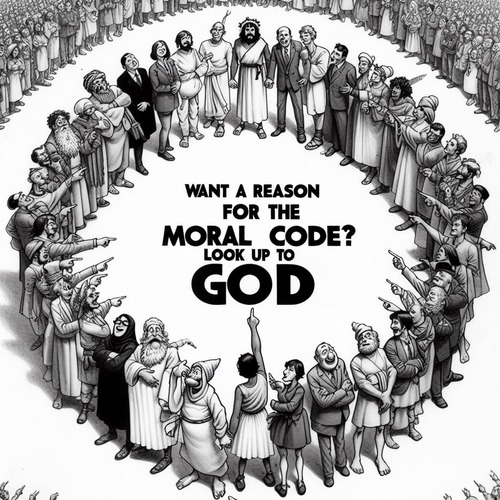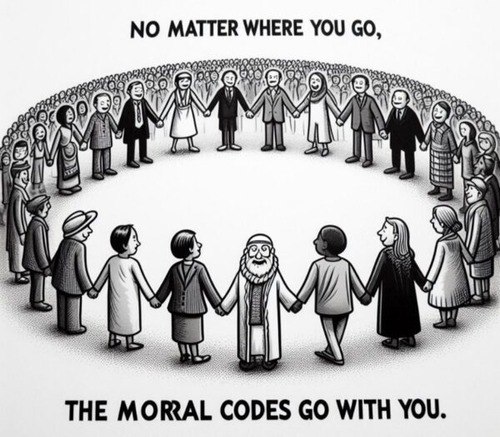Did the Universe Have a Beginning? Why Science Says Yes
Did the universe have a beginning? Has the cosmos existed eternally or did it emerge at some finite point in the past? Today, multiple lines of evidence from physics, astronomy, and mathematics converge to provide a compelling answer: yes, the universe almost certainly had a beginning. Let’s explore the evidence that has convinced the scientific community the universe did have a beginning.
THE PHILOSOPHICAL CASE: WHY INFINITE REGRESS IS IMPOSSIBLE
The idea of “infinite regress” suggests every cause has another cause before it, stretching back forever. But this concept has some logical challenges that hint at the universe needing a starting point. Here are three key reasons:
- The Completed Infinity Problem: If the universe has always existed, then an infinite number of events must have already happened to reach today. However, it’s impossible to complete an infinite sequence of events because infinity has no end. This makes the idea philosophically self-contradictory.
- The “First Cause” Idea: According to the Kalam Cosmological Argument, everything that starts to exist must have a cause. But if causes stretched back endlessly, there would never be a “first cause” to set everything in motion. Therefore, the universe must have had a beginning.
- The Time Progression Issue: Imagine trying to build an infinite chain one link at a time—you’d never finish. Similarly, time moves forward in steps, moment by moment. So, the past cannot be infinite; it had to begin somewhere.
THE MATHEMATICAL AND PHYSICAL EVIDENCE FOR A BEGINNING
Einstein’s groundbreaking General Theory of Relativity provides a strong mathematical foundation that points to the universe having a definite beginning. Here’s what the science reveals:
- The Singularity and Relativity: When Einstein’s equations are applied to the universe as a whole, they lead to a “singularity”—a point of infinite density and heat. This result suggests the moment when space and time themselves began.
- Vilenkin’s Expansion Proof: Physicist Alexander Vilenkin showed any universe that expands on average must have had a beginning. As he stated, “All the evidence we have says the universe had a beginning.”
- The Borde-Guth-Vilenkin Theorem: This theorem demonstrates that universes expanding throughout their history cannot stretch back endlessly. Even theories involving multiverses and string models fit this conclusion.
WHAT ASTRONOMICAL DATA REVEALS
Astronomical observations provide direct empirical evidence for a universe with a definite beginning. Multiple independent lines of evidence all point to the same conclusion:
- Hubble’s Expanding Universe: Distant galaxies are moving away from us, with farther galaxies receding faster. Reversing this expansion mathematically leads back to a point where all matter and energy converged in an incredibly hot, dense state approximately 13.8 billion years ago.
- Cosmic Microwave Background Radiation: This faint glow permeating all of space represents the afterglow of the Big Bang. Its precise properties, measured by satellites including WMAP and Planck, confirm the Big Bang model and allow cosmologists to determine when our universe began.
- Large-Scale Structure: The distribution of galaxies throughout space forms a “cosmic web” pattern. Computer simulations based on a universe with a beginning accurately predict this observed structure, providing further confirmation of the Big Bang model.
THERMODYNAMIC EVIDENCE: THE UNIVERSE IS RUNNING DOWN
The Second Law of Thermodynamics provides compelling evidence for a universe with a finite age. This fundamental principle about entropy has profound implications for cosmic history:
Increasing Entropy: In any closed system, entropy (disorder) always increases over time. If the universe had existed forever, it would have already reached maximum entropy or “heat death,” with all energy evenly distributed.
Current Low Entropy State: We observe a universe with stars shining, planets forming, and life flourishing—all signs of available energy and relatively low entropy. This indicates the universe must have started in an extremely low entropy state and has only existed for a finite time.
Heat Death Prevention: As physicist Arthur Eddington noted, “The law that entropy always increases holds the supreme position among the laws of Nature.” No known physical process can reverse cosmic entropy increase, making an eternal universe impossible.
THE COSMIC ABUNDANCE OF HELIUM
The distribution of elements throughout the cosmos provides a chemical fingerprint that points directly to a Big Bang beginning. This evidence is particularly compelling because it’s based on direct observation:
- Helium Abundance: Approximately 25% of the observable matter in the universe is helium, with most of the rest being hydrogen. Stars alone could not have produced this much helium, as calculations show stellar nucleosynthesis is insufficient to explain the observed quantities.
- Big Bang Nucleosynthesis: The Big Bang model predicts this helium abundance with remarkable accuracy. During the first few minutes after the Big Bang, conditions were perfect for primordial nucleosynthesis, creating the specific elemental ratios we observe.
- Deuterium and Lithium: In addition to helium, the abundances of deuterium (heavy hydrogen) and lithium-7 match Big Bang predictions. As Nobel laureate Steven Weinberg noted, “The first three minutes of the universe left an imprint we can still read in the abundances of the light elements.”
CONCLUSION: DID THE UNIVERSE HAVE A BEGINNING?
The evidence for the universe having a definite beginning is overwhelming. Philosophical arguments, Einstein’s equations, astronomical observations, thermodynamic principles, and the cosmic abundance of elements all point to the same conclusion: the universe started a finite time ago. This insight remains one of the most incredible discoveries in human history—it shapes our understanding of the universe and sets the stage for exploring its mysteries further.
DID THE UNIVERSE HAVE A BEGINNING? RELATED FAQs
How does the Big Bang theory align with the biblical account of creation? The Big Bang theory actually harmonises well with the biblical account of creation beginning with light (“Let there be light”). Genesis describes creation having a definite beginning from nothing, which parallels the scientific understanding that the universe began from a singularity. The timeframes may differ, but both accounts agree on a universe that began to exist rather than one that has always existed.
If God created the universe, who created God? Unlike the universe, God by definition is uncaused and eternal—existing outside of time itself. While everything within the universe requires a cause (as the evidence for a beginning demonstrates), God as the uncaused First Cause exists necessarily and doesn’t require an external explanation. This alone resolves the infinite regress problem that physical reality cannot solve on its own.
Why are there different age estimates for the universe between young-earth creationists and mainstream science? Young-earth creationists interpret Genesis as indicating a creation roughly 6,000-10,000 years ago, suggesting that God created the universe with an appearance of age. Other creationists embrace the 13.8 billion year timeline, interpreting the “days” in Genesis as representing longer epochs or phases of creation. Both views maintain that God initiated the universe, regardless of the timeline.
How do creationists explain the fossil record and geological evidence? Many creationists view the fossil record as evidence of the global flood described in Genesis, which would have rapidly buried organisms and created geological formations. Some propose that catastrophic processes during and after the flood formed features that conventional geology attributes to slow processes over millions of years. Others accept the conventional geological timeline while maintaining God’s role as the ultimate designer.
Can random processes like those described in the Big Bang produce the order we see in the universe? The extreme fine-tuning of physical constants and initial conditions required for our universe to form stars, galaxies, and ultimately life points to intentional design rather than random processes. The remarkable order that emerged from the Big Bang required such precise initial conditions that many creationists view this as compelling evidence of a Creator who established these parameters with purpose and foresight.
Does quantum physics eliminate the need for a Creator? Quantum fluctuations and virtual particles, while fascinating, still operate according to physical laws and cannot truly create something from absolute nothing. Quantum physics describes a vacuum with physical properties, energy, and governing laws—not the philosophical “nothing” that existed before the universe. These quantum phenomena themselves require explanation for their existence, pointing back to a transcendent cause.
How do creationists interpret the cosmic microwave background radiation? Many creationists accept the cosmic microwave background radiation as evidence of an extremely hot, dense beginning state of the universe, viewing it as the “echo” of God’s creative act. This radiation serves as powerful confirmation that the universe had a definite beginning point—precisely what the Bible has taught for thousands of years. Rather than contradicting creation, this discovery provides scientific validation of the biblical claim that the universe began to exist.
DID THE UNIVERSE HAVE A BEGINNING? OUR RELATED POSTS
Editor's Pick

Paul’s Mandate for Men: Headship Or Servant Leadership? Or Both?
Modern Christianity has fallen into a trap. We've created an either/or battle between "headship" and "servant leadership," as if these [...]

Should We Stop Using Male Pronouns for God? Why Do We Say No?
A friend of ours arrived eagerly at his first theology class in seminary. But he quickly discovered something troubling: the [...]

Did Old Testament Law Force Women to Marry their Rapists?
**Editor’s Note: This post is part of our series, ‘Satan’s Lies: Common Deceptions in the Church Today’… Viral misinformation abounds [...]

From Danvers To Nashville: Two Statements, One Biblical Vision
30 years separate the Danvers Statement on Biblical Manhood and Womanhood (1987) and the Nashville Statement on Human Sexuality (2017). [...]

The Nashville Statement: Why Affirm It Despite Media Backlash?
WHY DO REFORMED CHRISTIANS STAND BY THIS STATEMENT ON MARRIAGE AND GENDER? When the Nashville Statement was released in 2017, [...]

Who Is Belial? Solving The 2 Corinthians 6:15 Mystery
Belial: This name from the pages of Scripture chills the soul. Who is this mysterious figure Paul invokes in 2 [...]

Celibacy Or Castration: What Jesus Really Means in Matthew 19:12
One of Scripture's most shocking misinterpretations led theologian Origen to castrate himself in the third century. His tragic mistake? Taking [...]

Philippians 4:13: Did Paul Really Mean We Can Do ALL Things?
"I can do all things through Christ who strengthens me." It's on gym walls, graduation cards, and motivational posters everywhere. [...]

The Ordinary Means of Grace: Why Are They Indispensable?
ORDINARY MEANS FOR EXTRAORDINARY TRANSFORMATION What if God's most powerful work in believers' lives happens through the most ordinary activities? [...]

Is the Bible God’s Word? Or Does It Only Contain God’s Word?
The authority of Scripture stands at the crossroads of modern Christianity. While some argue the Bible merely contains God’s Word [...]
SUPPORT US:
Feel the Holy Spirit's gentle nudge to partner with us?
Donate Online:
Account Name: TRUTHS TO DIE FOR FOUNDATION
Account Number: 10243565459
Bank IFSC: IDFB0043391
Bank Name: IDFC FIRST BANK






